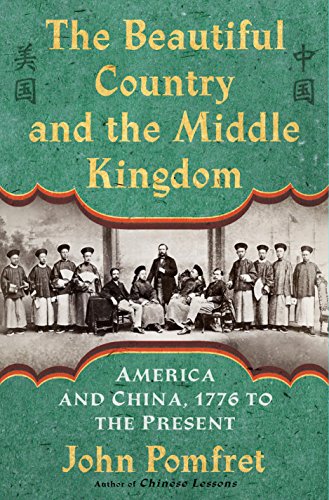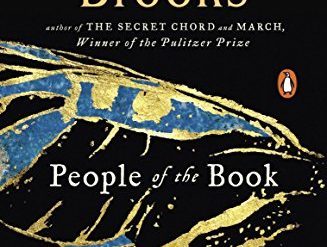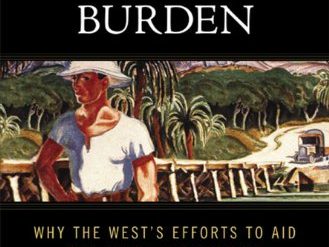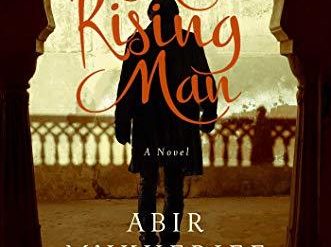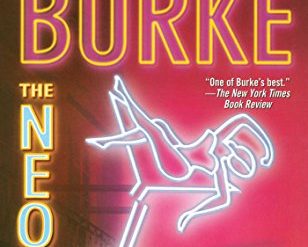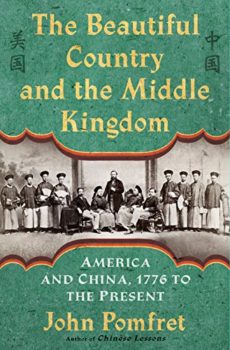
If the rise of one of the world’s most populous countries and its fraught relationship with the West are mysteries to you, these thirty books about China will help.
This post was updated on July 18, 2024..
China’s prelude to the 21st century
It’s widely believe that if the 20th was the American Century, the 21st may well prove to be China’s. There is good reason to believe that. Within less than a generation China’s economy will overtake that of the United States. It’s already number two. And under Xi Jinping, China is flexing its muscles all across East and Southeast Asia, egged on by a wave of ultranationalism that is sweeping through the Chinese people.
Meanwhile, the USA is in decline, no matter what our own ultra-nationalists might say. The proof lies in the deterioration of the country’s infrastructure, the wave of white nationalist populism that has begun to seize the levers of national power, and the failure of America’s leaders to assert world leadership on the issues that matter the most: climate change and nuclear proliferation. It behooves all Americans to learn more about the country that has emerged as our nation’s principal adversary. These twenty books about China can help.
Insightful books about China: nonfiction
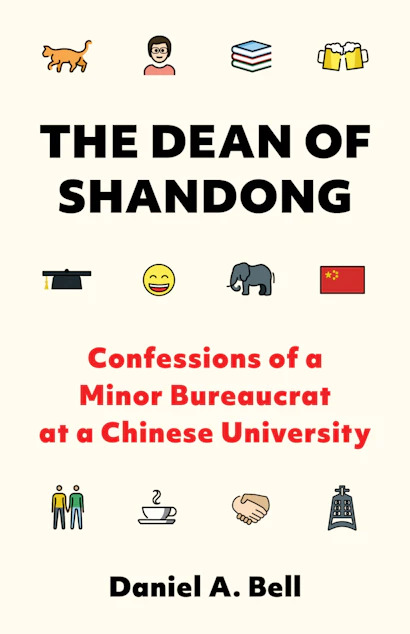
The Dean of Shandong: Confessions of a Minor Bureaucrat at a Chinese University by Daniel A. Bell—An insider’s view of the Chinese political system
Bell, a Canadian political scientist who specializes in Confucianism, has spent twenty years in Chinese academia. There, he has gained a unique perspective on the Chinese political system. What he reports contrasts with most Western media reports. Read the review.
The China Mirage: The Hidden History of American Disaster in Asia by James Bradley – “Who lost China?” Nobody.
James Bradley’s revisionist history of US-China relations locates the roots of today’s uneasy relationship between the two nations in the missteps of FDR’s Administration and the misinformation spread by the China Lobby. Read the review.
A History of Future Cities by Daniel Brook—Urbanization, globalization and the future of humanity
Shanghai is one of the four “great East-meets-West cities” whose history is probed in journalist Daniel Brooks’s insightful study of the twin forces of urbanization and globalization. In a unique way, this is one of the best books about China that I’ve found in recent years. Read the review.
Big Sister, Little Sister, Red Sister: Three Women at the Heart of Twentieth-Century China by Jung Chang—They shaped twentieth-century Chinese history
The three sisters’ lives spanned three centuries of Chinese history. Born late in the nineteenth century, the youngest of them died at the age of 105 in 2003. Together, these three extraordinary women helped shape the destiny of the world’s most populous nation from the closing days of the Manchu dynasty to the dawn of China’s ascension into a superpower. In Big Sister, Little Sister, Red Sister, the acclaimed Chinese-British historian Jung Chang tells their story with compassion and an obsessive attention to historical fact. In the process, she illuminates the story of twentieth-century Chinese history from a new perspective. Read the review.
Smoke and Ashes: A Writer’s Journey Through Opium’s Hidden Histories by Amitav Ghosh—A new history of opium as addictive as the drug
Part history, part memoir, part travelogue, Smoke and Ashes is the latest work by acclaimed Indian author Amitav Ghosh. Grounded in the extensive research he conducted in writing his extraordinary Ibis Trilogy, this new history of opium traces the story of the drug from its earliest known use six thousand years ago to the twenty-first century. It’s an account of how opium transformed the life of Ghosh’s family and shaped the course of events in India, China, and the United States in numerous and often surprising ways. As he writes, “opium remains pharmacologically indispensable to this day. Simply put, opium is perhaps the oldest and most powerful medicine known to man.” And it continues to upend social norms and disrupt lives around the world in the guise of cocaine, fentanyl, and other artificial opioids as well as opium smoked in pipes. Read the review.
Shanghai 1937: Stalingrad on the Yangtze by Peter Harmsen—The 1937 Battle of Shanghai that started World War II
To an outsider, a rapid Japanese victory in the 1937 Battle of Shanghai might have appeared inevitable. That Emperor Hirohito and the militarists who commanded the Japanese Imperial government shared that opinion. After all, the country had been building its military into a world-class force for nearly seventy years since the Meiji Restoration of 1868. The Chinese were no match for the mechanized might of the Japanese Army on land and its superiority both in the air and on the water. Unsurprisingly, then, as Harmsen notes, “[i]n their habitual disdain for the Chinese, the Japanese leaders figured that this would be more than enough to deal with the nuisance across the sea.” They expected to take Shanghai within days. “Underestimating the foe was a mistake they were to repeat again and again in the coming weeks and months.” Read the review.
Sparks: China’s Underground Historians and their Battle for the Future by Ian Johnson—Digging out the truth about Mao Zedong
History exerts a powerful force on the present. Why else would battles rage over the historical record around the world? In the United States, for example, some insist slavery was the central driver in our history, while others fight back fiercely. And in Russia, where the Putin regime seeks to downplay Stalin’s crimes while millions of Russians resist, remembering the pain. But nowhere has the war over history been waged with such determination, or the facts so deeply buried, as in China. Journalist Ian Johnson exposes the truth about Chinese history in Sparks. He shows how Xi JInping is rewriting the story of Mao Zedong’s catastrophic campaigns to re-engineer Chinese society. But Johnson doesn’t dwell on the mechanisms of the Party’s totalitarian reach. Instead, he introduces us to those courageous individuals who risk the threat of prison or worse to report and preserve the truth about China’s past. Read the review.
Asia’s Cauldron: The South China Sea and the End of a Stable Pacific by Robert D. Kaplan – Competition between the U.S. and China through the lens of geopolitics
Despite the “pivot” to Asia trumpeted by the Obama Administration, despite the constant refrain by observers of world affairs that the 21st century is shaping up to be dominated by a leadership contest between China and the US, the American news media as well as the public continue to direct their attention primarily to the Middle East and Europe. Robert D. Kaplan believes this is a tragic error. Read the review.
Monsoon: The Indian Ocean and the Future of American Power by Robert D. Kaplan—The geopolitical reality behind the “pivot to Asia”
The themes that predominate in Monsoon, as in much of Kaplan’s other work, are the profound impact of geography, the enduring importance of history, and realpolitik. It’s unsurprising that he would be so popular in the defense establishment, which shares these preoccupations. In his view, Asia, and most particularly South Asia, holds the key to the future big-power alignments of the twenty-first century. That future, he believes, will play itself out along the shores of the Indian Ocean, which stretches from East Africa, the Middle East, and the Indian subcontinent to Southeast Asia and the Indonesian archipelago. It’s a future in which naval forces will be dominant. Read the review.
The Last Kings of Shanghai: The Rival Jewish Dynasties That Helped Create Modern China by Jonathan Kaufman—The foreign businessmen who helped build modern China
Kaufman’s saga begins in Baghdad, the ancestral home of these two remarkable families. For 800 years, the Sassoons had lived at the apex of Iraqi society. The head of their family was routinely recognized as the Nasi, or prince, of the wealthy and influential Jewish community of the city. But early in the 19th century, teenage David Sassoon (1792-1864) was imprisoned by local authorities in a brazen attempt to extort a huge sum of money from his family. His father managed to break him out of prison and hustle him onto a ship bound for Bombay.
There, the young man “and his eight sons built a business empire across Asia. Though he never learned Chinese or English, he piloted his family to dominate the China trade, subdue and shape Shanghai, control the opium business, bankroll the future king of England [George V], and advise prime ministers.” David Sassoon was a force of nature. It’s no exaggeration to write that he helped build modern China. For decades, much of Shanghai’s skyline was the result of his investments. When he and his family were referred to as “the Rothschilds of the East,” he was contemptuous. He was richer than they were and regarded them as arrivistes. Read the review.
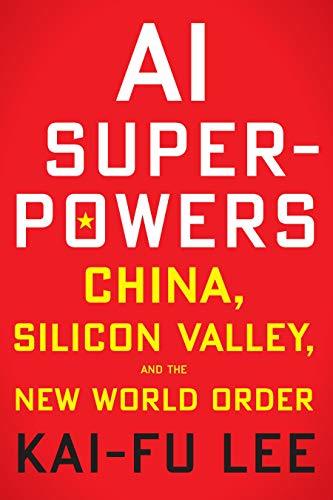
AI Superpowers: China, Silicon Valley, and the New World Order by Kai-Fu Lee – The best book about artificial intelligence I’ve read so far
One of the world’s foremost experts on artificial intelligence asserts that China may soon reach parity with the US in most applications of AI. The result of advances in the field, he believes, will be massive concentration of wealth in the handful of Chinese and American AI companies, economic inequality far surpassing today’s both globally and domestically in both countries, and, as a consequence, widespread social disruption and political collapse. If you’re looking for books about China that point the way to the future, here’s a great way to start. Read the review.
Forgotten Ally: China’s World War II, 1937-1945 by Rana Mitter—A gripping history of China in World War II
Read just about any popular history of World War II, and you’ll find any number of references to the Allies as the Big Three of Britain, the US, and the Soviet Union. What’s missing is recognition that China bore nearly as high a price as the USSR, with an estimated fourteen to twenty million dead compared to fewer than half a million for the UK and the US. (The Soviet Union lost as many as twenty-four million dead.) On that basis alone, Oxford University historian Rana Mitter is justified in titling his revisionist history of China in World War II Forgotten Ally. But, as he explains at length, recognition of China’s contribution to the war effort is overdue on a far broader basis than that. Read the review.
Age of Ambition: Chasing Fortune, Truth and Faith in the New China by Evan Osnos – Chasing fortune, truth and faith in the New China
In his brilliant survey of contemporary China, New Yorker staff writer Evan Osnos trains his penetrating repertorial eye on about a dozen central figures who represent the broad range of diversity in the world’s most populous country. Age of Ambition won the National Book Award for Nonfiction. This is one of the best books about China that I’ve come across that conveys what it’s like to live today in that rising nation. Read the review.
A Force So Swift: Mao, Truman, and the Birth of Modern China, 1949 by Kevin Peraino – Mao, Truman, and the birth of Modern China
By focusing on the events of a single year, and concentrating on just ten key individual players in the drama, Kevin Peraino has brought back to life the complex circumstances surrounding one of the seminal events of the 20th Century: the birth of the People’s Republic of China. Read the review.
The Beautiful Country and the Middle Kingdom: America and China, 1776 to the Present by John Pomfret – A revealing history of U.S.-China relations
Some Americans seem to have the impression that the U.S. relationship with China began in 1972 when Richard Nixon flew to Beijing. Journalist and long-time Beijing resident John Pomfret puts this mistaken impression decisively to rest. In truth, the destinies of the two countries have been closely linked for more than two centuries—and began when the U.S. shed its identity as a British colony in 1776. Read the review.
China in World History by Paul S. Ropp – Chinese history in less than 200 pages
China faces the world with critical advantages: a written language that spans numerous mutually unintelligible languages and dialects; an acceptance of “the world and human existence as facts of life that needed no supernatural explanation or divine creator;” and a contiguous landmass advantageously situated to command much of the Asian continent. Together, these facts help account for the reality that, except for the nineteenth and twentieth centuries, China was the world’s most advanced and prosperous nation throughout its 3,500-year history. Read the review.
Overreach: How China Derailed its Peaceful Rise by Susan L. Shirk—Why the US and China are at odds
Many Americans seem to assume that the current tension between the US and China arose only with the election of Donald Trump in 2016—or with the rise of Xi Jinping to the top of the Chinese Communist Party (CCP) four years earlier. But that’s far from the case. In Overreach: How China Derailed Its Peaceful Rise, veteran China analyst Susan Shirk reveals the fateful changes that played out in Beijing beginning a decade earlier. Bringing to bear a half century’s experience as a student of Chinese politics, Dr. Shirk digs deeply into the weeds of the country’s opaque political system to document the emergence of its aggressive new stance in the world—and the growing risk of war between the US and China.
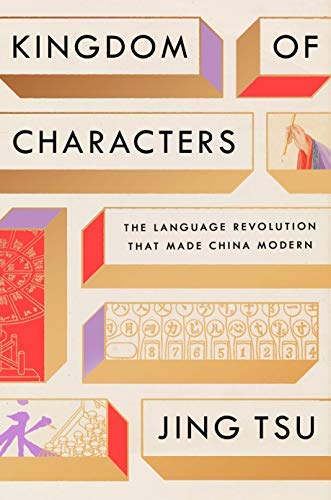
Kingdom of Characters: The Language Revolution that Made China Modern by Jing Tsu—How China learned to communicate with the world
Learning to read Chinese can be a monumental challenge for almost anyone—including the Chinese. There is no alphabet. In fact, there is really no single language called Chinese, which is a family of languages and dialects, many of which are mutually unintelligible.
How, then, could anyone not a native speaker possibly master the language? More to the point, how can anything written in Chinese be accurately translated into another language? Or converted into the 1’s and 0’s of the language of computers? In Kingdom of Characters, Yale professor Jing Tsu tells a remarkable story. It’s the tale of the brilliant men who engineered the Chinese language revolution. Read the review.
Party of One: The Rise of Xi Jinping and China’s Superpower Future by Chun Han Wong—An insightful biography of Xi Jinping
Early in his career as a rising provincial official, people locally viewed him “as a cautious and somewhat nondescript administrator, one who preferred working by the book and avoiding decisions that could backfire later.” But, as Wall Street Journal reporter Chun Han Wong makes clear in his incisive new biography of Xi Jinping, he was simply biding his time. Xi was building a base of friends and supporters who could help him attain the greatest prize of all: paramount leadership in the Communist Party. And today we know that Xi Jinping is anything but cautious or nondescript. He has seized the reins of power like no one else in China since Mao Zedong and worked himself into a position where he may rule the country for life. Read the review.
Last Boat Out of Shanghai: The Epic Story of the Chinese Who Fled Mao’s Revolution by Helen Zia—Four young Chinese experience WWII and Revolution
Zia uses the tools of biography to paint a wide-screen view of China’s troubled history from 1937, when Japan launched World War II by invading the country, to 1949, when Mao proclaimed the People’s Republic of China. Her principal subjects are two women and two men among the estimated one million Chinese who fled Shanghai as the Red Army neared the city. One of the women was her mother. Read the review.
The Peking Express: The Bandits Who Stole a Train, Stunned the West, and Broke the Republic of Chinaby James M. Zimmerman—When bandits toppled China’s government
China has suffered through a series of titanic convulsions over the past two centuries. The Opium Wars, when the West seized control of the country. The Taiping Rebellion, which killed thirty million, and the Boxer Rebellion, when the West occupied Beijing. Fall of the Qing Dynasty. Japanese occupation (1937-45). And the civil war that led to the establishment of the People’s Republic of China. Not to mention the famine, deprivation, and terror later fostered by Mao Zedong. So, against this backdrop the Lincheng Incident a century ago may seem to deserve merely a footnote. But in its way the events described in James M. Zimmerman’s engrossing account of the incident, The Peking Express, also helped shape the course of Chinese history—and the country’s relationship to the outside world. Then, a century ago, a Chinese hostage crisis “broke the Republic of China.” Read the review.
Insightful books about China: novels
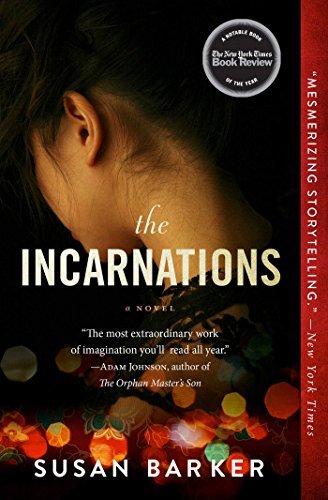
The Incarnations by Susan Barker – A brilliant novel that spans a thousand years of Chinese history
No doubt Chinese history (or, for that matter, the history of any other people) is littered with innumerable examples of depravity, violence, and betrayal. Though I’d like to think that a few good things happened, too — and I know that they did, having read some Chinese history — the novel The Incarnations takes a thousand-year tour through the bad stuff. It’s tough to find good people in these pages. With that said, however, The Incarnations is a brilliant piece of work — consistently engrossing, suspenseful, and intricately plotted. Read the review.
Daughters of Shandong by Eve J. Chung—How one family survived the Chinese Revolution
Thirteen-year-old Hai is the eldest of three daughters. With Di, who is two years younger, and one-year-old Lan, she and her mother, Chiang-Yue, are alone in the manor house as a mob of Communist cadres approaches. Their father, grandfather, uncle, and cousins have fled to the big city, Qingdao, forcing them to stay behind to protect the property for their return. It’s all as dictated by Chiang-Yue’s mother-in-law, Nai Nai, the tyrannical and sadistic old woman who has made Chiang-Yue’s life miserable, every day of her married life. Nai Nai rules the roost.
But the family will not return. It’s 1948, and Mao’s Red Army has swept the Nationalist forces from the north. They’re now on a rampage through the province, seeking out the landowners who have impoverished the peasants. And when they arrive at the family compound, enraged that the men have fled, they single out Hai to take the blame. Read the review.
Tai-Pan by James Clavell—A swashbuckling story of the founding of Hong Kong
In many ways, this is an over-the-top tale dominated by a larger-than-life (and barely believable) protagonist. But the author has done his homework, and the depiction of the clash of cultures between British and Chinese, the pidgin language, the Chinese culture, and the rigidity of the British outlook on the world are all solidly based on historical fact. Read the review.
Sea of Poppies (Ibis Trilogy #1) by Amitav Ghosh – A superb historical novel about the opium trade by Amitav Ghosh
The story is set in 1838, shortly before the First Opium War in China which set the stage for mounting conflict in India, as the opium trade declined. Ghosh’s unforgettable characters quickly take on lives of their own, thinking and speaking in their own, often uniquely personal variations of the languages and dialects of the era. To achieve the remarkably musical cadence of the book’s dialogue, Ghosh immersed himself in contemporaneous dictionaries, grammars, and diaries. Sea of Poppies is a brilliant accomplishment. It’s worth re-reading — it’s that good. Read the review.
River of Smoke (Ibis Trilogy #2) by Amitav Ghosh – A brilliant Indian novel about the first Opium War
The first book in this brilliant trilogy by one of India’s most outstanding writers, Sea of Poppies, set the scene with an in-depth look at the harvesting and manufacture of opium in India. River of Smoke details the life at sea and in the foreign enclave in Canton of the immensely rich men who dominated the trade, principally Britons. Ghosh’s sprawling novel spans the years 1838 and 1839, detailing the events in South China that led to the First Opium War. Read the review.
Flood of Fire (Ibis Trilogy #3) by Amitav Ghosh – An outstanding Indian novelist looks at the Opium War
Opium is at center-stage in Flood of Fire, which traces the consequential history of the British, their Indian allies, and the mandarins ruling China just before and during the First Opium War. Though it occurred nearly two centuries ago, this historical event is worth revisiting today for its lasting influence on today’s Chinese rulers, whose memories are vivid about the humiliation visited on their country by the British, other Europeans, and (later) the Americans. Few of us in America today can appreciate the intense feelings this nineteenth-century conflict continues to conjure up in the minds of educated people in China. Read the review.
Jade Dragon Mountain (Li Du #1) by Elsa Hart—An intriguing murder mystery set in 18th century China
It’s 1708, and the still-young Qing Dynasty is consolidating its power. The Kangxi Emperor, second in the dynastic line, plans a year-long journey to loosely-held Yunnan Province to secure the allegiance of the local people. He will arrive in 1708 in time for a mammoth festival, where he will predict the precise time of a solar eclipse. And this is the setting for Jade Dragon Mountain, a murder mystery set in 18th century China that is the first entry in Elsa Hart‘s series of historical novels featuring the scholar Li Du. Read the review.
A Map of Betrayal by Ha Jin – Betrayal is in the eye of the beholder
Who is the betrayed, and who the betrayer? It’s clear from the outset that there’s plenty of blame to spread around in this deeply engaging novel about a Chinese mole in the CIA. Gary (née Weimin) Shang is a young secret agent for Mao Tse-Tung’s Communists in the culminating days of the Revolution. He is singled out by his handlers to infiltrate an American intelligence unit that is later absorbed into the CIA itself. Despite begging his handlers at every turn to permit him to return to his wife and children in rural China, Shang is progressively more and more generously rewarded as he rises through the CIA ranks through three decades. He marries an American woman and fathers a daughter, the principal narrator of the novel. Read the review.
How I Became a North Korean by Krys Lee—A compelling story of North Korean refugees in China
Three North Korean teens fleeing North Korea find one another over the Chinese border and end up cowering together in a cave, hiding from the police who would send them back. The three couldn’t be more different. Yongju is the treasured son of the #11 official in North Korea’s government, but the country’s Dear Leader has murdered his father in a drunken rage, forcing his family to flee Pyongyang. Jangmi, daughter of a destitute northern family, has survived for years smuggling goods across the border. She is pregnant by a married man who rejects her. And Danny is a devout evangelical Korean-American Christian who is gay. Facing humiliation at his private school when a friend outed him, he has fled to China to reunite with his missionary mother. In Krys Lee’s novel about North Korean refugees, How I Became a North Korean, she tells their stories in alternating chapters. Read the review.
Death in Shanghai (Inspector Danilov #1) by M. J. Lee—In a grim historical thriller, a serial killer strikes in 1920s Shanghai
Detective Inspector Pyotr Danilov of Central Police Station in the International Settlement had arrived in Shanghai in 1925 as a refugee from the Russian Revolution. For many years, he had served as a detective in the Imperial Police in Minsk. Danilov’s investigation of a series of murders unfolds over five days late in February 1928. As we learn early in the tale, a serial killer is on the prowl. He’s convinced “he needed to cleanse the city of its degenerates, to remove the bloated maggots that fed on its flesh. He had made a start in other places, of course, but somehow, it never felt right.” Read the review.

Beijing Payback by Daniel Nieh—Dirty money from China is at the root of this thriller
Victor Li’s father has been stabbed to death, upending his career at San Diego State University as a basketball player. The old man had built a chain of four Chinese restaurants in the San Gabriel Valley, and Victor and his older sister, Juliana (Jules), expect to inherit them. But their father’s dodgy lawyer informs them that the restaurants were owned instead by a company in Beijing. As a rough-hewn character — likely a gangster — arrives to take charge of the restaurants, Victor grows suspicious about who had murdered his father. And when he comes across a long letter from the old man, he learns that everything he had believed about their life in China was wrong — and that his father’s last wish was for him to fly to Beijing to right a terrible wrong. Read the review.
Death of a Red Heroine (Inspector Chen #1) by Qiu Xiaolong—A gripping Chinese police procedural
You might think a police officer in any country in the world would share a great deal with anyone in law enforcement anywhere else. Surely, detecting crime and punishing criminals is a straightforward process that must involve the same methods everywhere. A Chinese police procedural must closely resemble one set in the United States or anywhere in Europe, right? But, while that’s all true to some extent, the assumption falls apart when the social and political conditions in which police officers operate are dramatically different. And Chinese-American author Qiu Xiaolong’s award-winning Chinese police procedural, Death of a Red Heroine, brilliantly dramatizes that point. Read the review.
A Loyal Character Dancer (Inspector Chen #2) by Qiu Xiaolong—In a Chinese murder mystery, the legacy of the Cultural Revolution looms large
During the last ten years of his life (1966-76), Mao Zedong shut down China’s schools and universities, denying an education to a generation. At his urging, millions of Chinese teenagers and young adults turned instead to revolution. They upended life throughout their country in a frenzy of fanatical posturing and violence. In this so-called Cultural Revolution, those who were already “educated youth” were sent to rural villages to learn the ways of the people by working for years in menial jobs among the peasantry. The central characters in Qiu Xiaolong’s novel, A Loyal Character Dancer, set in 1990, have all emerged scarred from this experience. And the legacy of the Cultural Revolution haunts them all. The book is both a masterful detective story and a thinly fictionalized history of China midway through its transition from Mao to Xi Jinping. Read the review.
China by Edward Rutherfurd—Chinese history made fun and easy in a compelling novel
The roots of the Chinese Communist Revolution lie in the 19th century. The Opium Wars, the Taiping Rebellion, the Boxer Rebellion—these three blood-soaked events set the stage for the dissolution of the Chinese Empire in 1912. The chaos of one century led to a new sequence of chaotic episodes in the next. The brief republican government that succeeded the Empire paved the way in turn to the Chinese Civil War and ultimately to the establishment of the People’s Republic of China in 1949. English novelist Edward Rutherfurd, the acclaimed author of Sarum, Russka, London, and other historical novels, tells the tale of those three 19th-century events in his engaging and highly readable Chinese historical novel. It’s entitled simply China. Read the review.
Straw Dogs of the Universe by Ye Chun—A deeply moving immigrant story set in the 19th century
The Chinese who flocked to America in the mid-19th century encountered racism and violence unmatched in ferocity by any other immigrant population to our shores. Many encountered mobs who burned their homes and murdered them wholesale—and a government that sided with their attackers. Even in the quiet times between pogroms, they met with hostility a hair’s breadth away from murderous rage. So, the question arises how they could possibly have endured. And that’s the question at the heart of Ye Chun’s explosive debut novel about Chinese immigrants, Straw Dogs of the Universe. Read the review.
Four Treasures of the Sky by Jenny Tinghui Zhang—The Chinese immigrant experience in 19th-century America
For millions of White Americans, the 19th century was an era of expanding opportunities. Settlers steadily pushed back the Western frontier, and the Industrial Revolution gained momentum until, by century’s end, the United States boasted the world’s most productive economy. But for African-Americans, Native peoples, Chinese immigrants, and for anyone else—Irish, Italians, and Jews—who simply seemed “different” to the country’s majority population, the experience of life in America was often harsh beyond measure. Jenny Tinghui Zhang’s moving novel, Four Treasures of the Sky, illuminates one of the most overlooked of those experiences. She tells the long-hidden story of the Chinese men and women who came across the Pacific, willingly or not, to work the mines and railroads, the laundries and the brothels. Read the review.
For related reading
For additional perspective on world history, see 20 top nonfiction books about history. You might also be interested in Top 20 popular books for understanding American history.
And you can always find my most popular reviews, and the most recent ones, on the Home Page.

